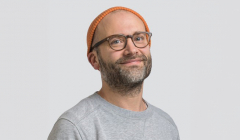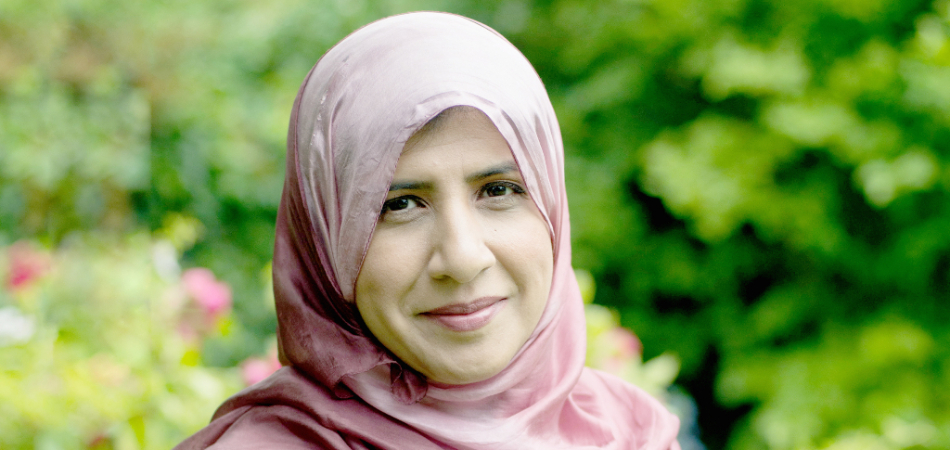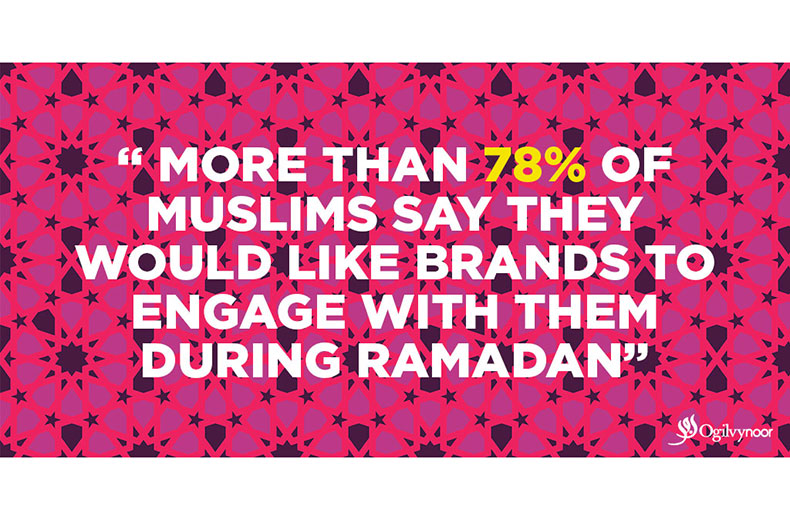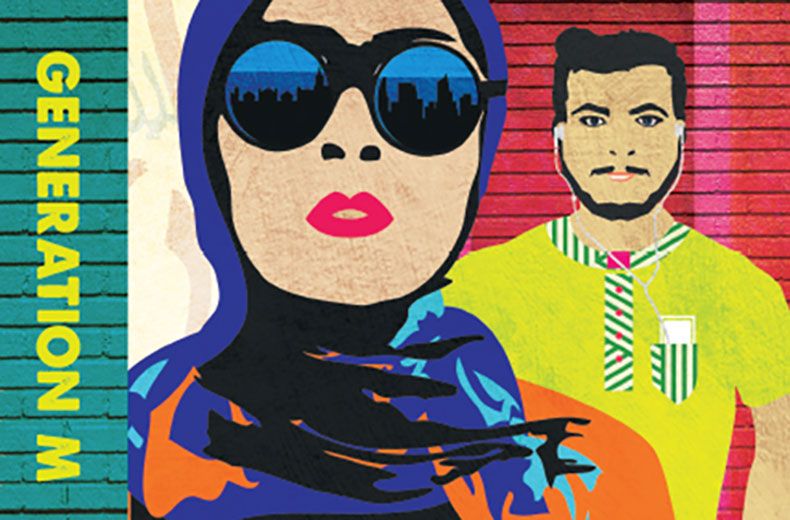
We can't be scared to take risks in 2025 – but it’s a team effort
Jeff Bowerman shares how he is embracing a ‘thrive in 2025’ mentality.
Vice President, Ogilvy Noor


Career to date:
2011, Vice President, Ogilvy Noor, Ogilvy & Mather
2007, Proposition Marketing Manager, Motorola
2002, Marketing Manager, Onetel
2001, Marketing Product Manager, Vizzavi
2000, Product Market Developer, Batelco Bahrain
1999, Portfolio Manager, Cable & Wireless
Shelina Janmohamed: There’s two parts to the work we do. One is developing the thought leadership we have around who is Generation M, the term we coined around Muslim audiences, and the specific group that really want brands to talk to them. [We’re] making sure we’re authentic, that we have deep understanding of what they want and what this can mean for brands.
The other part is that we work with brands and organisations to think about some of the specific engagement they might want to do but also how we weave that into their wider communications portfolio as well. The founding principle of Ogilvy Noor is that young Muslims in particular, but Muslims more generally want brands to engage with them.
Shelina Janmohamed: I come from product marketing - this is going to show my age! When I became a marketing trainee I worked in telecoms. On my first day, their Marketing Director said “Shelina, on the sixth floor there is a computer and it’s got this thing called the Internet, can you go and find out what it is?” I became the company’s first Internet Product Manager.
I went to work in the Middle East for a while to see how they could liberalise their telecoms. When I came back, September 11th happened. I found increasingly there was nobody talking about the experience of what it meant to be young, British, Muslim, female and quite happy in all those skins. I started a blog writing about it. I found my writing was being forwarded all over the place because there wasn’t anyone talking about this very intersectional experience.
My TV debut of all places was BBC Newsnight. I got lots of people saying would you write a book about what it means to be Muslim? I was like but I’m not a footballer or politician or celebrity. Then I remember seeing all these books written about being Muslim women. They all had niqabs, veils, sand and desert and I was like, this does not look like Britain. I decided to write my book, Love in a Headscarf and that was a big shift in my career. It was about seeing a conversation that needed to happen and trying to push for that.
I started travelling around the world, talking to young Muslims. I travelled across the Middle East to Darfur, Malaysia, Indonesia. That really gave me a very global perspective built around the fact that the book and the insights I’d written were resonating with people all around the world. I did some work with the Foreign Office, with Channel 4. I’d started writing about branding and Muslim audiences because I could see this trend was rising. Ogilvy Noor was launched, and I started talking to [Miles Young – then CEO Ogilvy & Mather] and long story short, I came to join Ogilvy Noor.
“The founding principle of Ogilvy Noor is that young Muslims in particular, but Muslims more generally want brands to engage with them."
Shelina Janmohamed: Ogilvy was visionary because it was the first agency that thought about this particular audience. It coined the idea of the Muslim consumer and started talking to brands. What we’ve seen is brands slowly realising they need to have this quite serious conversation. It’s a commercial conversation too. People tend to be quite nervous about entering conversations around religion, faith, specific groups. Our expertise is there to help people realise there is a conversation, one their audiences will embrace but to make sure you do it right. As with any new audience, there are risks that go with it.
We have great relationships with Muslim audiences, so they feel very willing to talk to Ogilvy and be part of the conversation. When we launched the book Generation M, we commissioned young Muslim filmmakers to create their own stories because part of it is giving the audience their own platform. It’s about that authentic, genuine voice. When we did the launch event, I think we got more Facebook live views than any other Ogilvy had done at that time because we put real people on the platform. The approach we always take with brands and this audience is, how do we make this a genuine, authentic engagement? When brands do talk to [this audience], it’s by invitation and therefore with good will.
Shelina Janmohamed: The Ogilvy Middle East office did a lovely piece with Coca-Cola last year called the Dark Iftar about challenging the stereotypes, which is one of the things you’re supposed to do when you’re fasting. There was a piece done out of Singapore for Unilever on Comfort, using a really nice, deep insight which brands might overlook. In Ramadan, fragrance is something you’re really concerned about because when you don’t eat or drink, you don’t smell great. They built a whole thing around a young couple coming together and feeling that romance based on the fragrance you get from Comfort. It’s that kind of deep insight we want to bring to brands. It’s too easy for brands to be quite stereotypical and that’s what we’re trying to move forward from.

Shelina Janmohamed: We’re about to see a tipping point and it’s going to change. You do see supermarkets having things like halal food. But they’ve been leading the conversation because the practicalities of food and drink in terms of consumption are much clearer. The wider brand audience hasn’t really embraced the fact that there are these calendar moments, these specific lifestyle occasions. There’s also a bigger lifestyle, what we’ve called Generation M, that brands are not tapping into. For some brands, that’s about a specific engagement that’s tailored around Muslim audiences. And for [others] it’s about how do you integrate that into your wider communications platform? It’s finding the right strategy for the right brand.
Shelina Janmohamed: I’m awaiting that moment in the UK.
Shelina Janmohamed: The piece of communications that’s really captured global attention has been the advert by Nike on the pro-hijab for sport. It found a great balance between speaking directly to the audience it was aimed at, Muslim women, but engaging the wider audience. Even if that product wasn’t for you, you understood that this was something you could celebrate with the people that it was for. I think a lot of brands are worried about finding that balance.
In the last two years we’ve seen people are expecting brands to react to the social conversation. And the conversation about Muslims is one of the biggest conversations if you look at the amount of headlines, news, events around it. It’s something that people want to talk about. If you want to engage this audience that is starting to go elsewhere and look to much smaller brands, then you have to take it quite seriously.
“In Britain you have this real sense the fabric of British life is changing. How do you depict that in a way that doesn't feel cheesy and cliched but feels authentic and gives the right amount of respect and platform to each audience according to how they want to be engaged with?"
Shelina Janmohamed: Part of it is taking the insights we have and the expertise and making sure that’s woven through all the client work that we do. We can then shape what the specific client wants to do and what’s right for them. We might see that in casting, in language, it might be something around specific seasons [or] certain occasions that Muslims have. In Britain you have this real sense the fabric of British life is changing. How do you depict that in a way that doesn’t feel cheesy and cliched but feels authentic and gives the right amount of respect and platform to each audience according to how they want to be engaged with? Those are the sophisticated conversations we have to have.
Shelina Janmohamed: We would like to grow the expertise we have. We would like to ensure the brands we work with are leading this conversation because we are returning to a time where cultural leadership is really important for brands. Thinking specifically about the UK, this is a great moment where we can think in our domestic life but also our international life about how we can have very nuanced conversations. The commercial opportunity [in] talking to Muslim audiences is vast. In the UK for example they’re spending £3 billion every year on food alone [and] £21 billion across the economy.
It’s a no brainer space to engage with audiences because [Muslims audiences] want brands to talk to them. Brands are not talking to them, they’re very disappointed. On top of that, they’re also a very young and increasingly affluent group. If you’re looking at where your strategic investment is going to be, it just makes complete sense to understand who the audience is and therefore how you integrate that into your strategy.

Shelina Janmohamed: My view is about listening to what the audience are saying. We’ve published three big studies about what it genuinely means to be a Muslim audience. That means the feedback we get from Muslim audiences is very strong, but also that when we go to brands we have real data, real expertise. It’s a great brand purpose to have those social conversations but at the end of the day, businesses are businesses and we want to help them succeed. Understanding how those two intersect and where you can find the right sweet spot is what we’re here to do.
Shelina Janmohamed: I always look out for what Riz Ahmed is doing. He’s a very interesting champion of arts, creativity and culture. He sang this brilliant rap called 9/11 Blues and he really knows how to puncture the conversation. He finds the right balance of progressing a career which he’s passionate about but understanding the wider context of his own personal journey. He was in a film called Four Lions, a satire by Chris Morris on what terrorism means, which resonated hugely with Muslim audiences because it got the seriousness of it alongside where the humour is. The interesting thing that that film does and which Riz also does is separate out the religion part and focus on the human experience.
[Riz] also did this interesting speech in Parliament talking about the importance of representation and, he calls it, inclusion and about the impact this has on our creativity. The more varied, both the people in the organisation but also the people we’re talking to, are, the better the quality of your creativity. There is a piece that all of us working in this industry have which is that advertising and creativity is such a powerful social force that there is something in our conscience that wants to be able to say something sophisticated about it. If I was going to pick somebody who I really feel has been a torch bearer for this conversation at the same time as delivering really great work that all of us can enjoy, it would be [Riz].
The trend that we’re focused on is the idea that customers want to know more about the social, economic and environmental impact of brands. How do you evaluate that in the brands you work with?
My answer, is always about what does our audience think? And our audiences are very sophisticated. They will look at a brand and what it says its purpose is and then they will thoroughly interrogate what is behind that brand.
The simplistic answer would be, if you’re a food brand and you’re not halal, don’t even talk to me. But what these young Muslims are saying is, you might be saying you’re friendly to Muslims but how are you treating your Muslim workers? What are your politics in the background? All these things start to come into play and for brands that’s a really great thing because if you’re going to make a promise, you should deliver against it.
Looks like you need to create a Creativebrief account to perform this action.
Create account Sign inLooks like you need to create a Creativebrief account to perform this action.
Create account Sign in